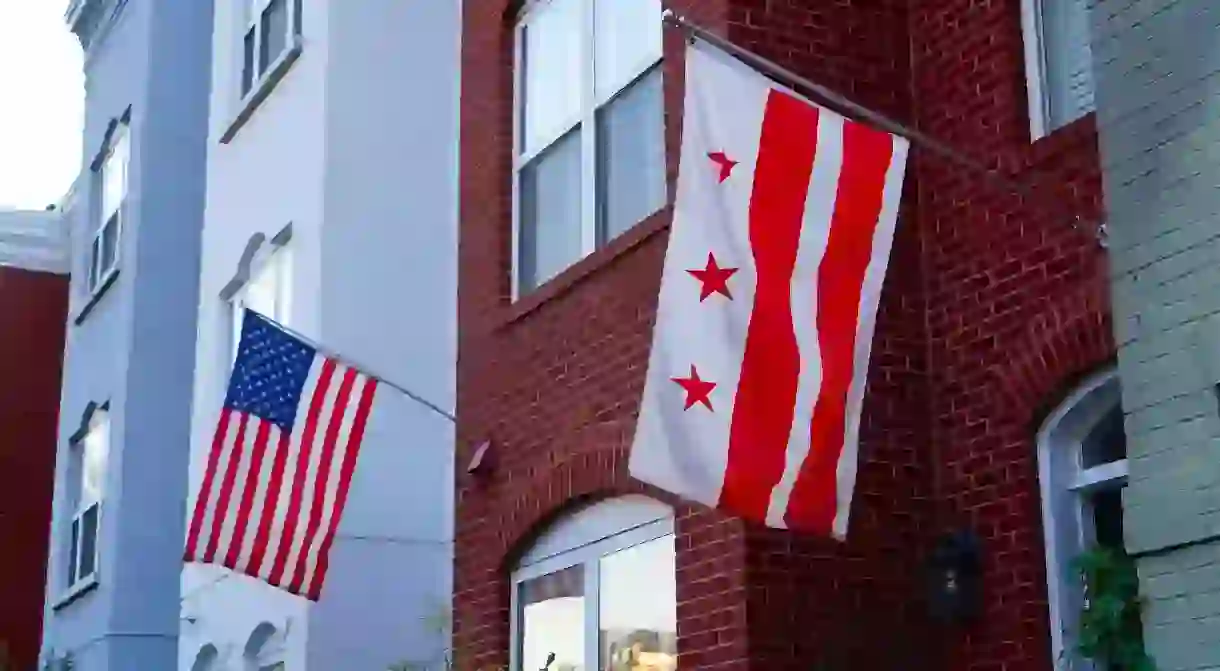Understanding Washington, D.C.'s Struggle For Statehood

Ah, Washington, D.C., the capital of democracy…so why do the official license plates read, ‘TAXATION WITHOUT REPRESENTATION’? Even President Obama’s limo proudly sports the plates. The phrase is an echo of the American Revolution, a rebellion spurred by the colonial tax system where Americans had no representation. They were taxed without having a say in where the finances went, because they weren’t afforded representation in Parliament, and it was rarely directed to their own interests. In the current American democracy every citizen is afforded Congressional representation – unless you’re a resident of Washington, D.C. (or other American territories).
The nation’s most prominent catch-22: DC is not a state in itself, but it neither belongs to a state. It’s a federal district, engineered as the nation’s capital. But the 658,000 people who call Washington home are too often forgotten about. While Congress resides in DC, no one in Congress is there to fight for its local interests. A statehood movement emerged as an answer to the federal government’s treatment of Washingtonians.

The District is not afforded Congressional representation, and, as a result, Congress routinely passes legislation that negatively impacts the capital. Prior to 1961, DC residents weren’t even permitted to vote in presidential elections; the struggle for voting representation and District autonomy has spanned over a century. Presently, Washington holds one electoral college vote, but possesses zero votes in the House and Senate. DC elects one non-voting member to Congress, Eleanor Holmes Norton, who has no authority and serves as nothing more than a figurehead. Due to this lack of representation, Congress often imposes itself on District affairs.
When residents overwhelmingly voted in favor of Initiative 71, which legalized recreational marijuana usage in DC, Congress interfered in their local governance. Congress does not possess the authority to overturn or impede any state’s legislation, but it has complete oversight of the District. Within the 2015 federal spending bill, Republican legislators inserted an extraneous amendment that prohibited the sale of marijuana in the District. Congress, desperate to avoid yet another government shutdown, approved the budget. As a result, possession of recreational weed is legal in the District, but the sale of it remains illegal – an odd loophole that many grow-ops have utilized.
DC’s public transit system is also overseen by Congress. Perhaps not coincidentally it’s also one of the most mismanaged and dangerous transit systems in the country. Every time a metro crashes, or catches on fire, or simply requires a complete emergency shutdown because of imminent safety concerns, Congress slashes its federal funding. Given the people who make these decisions have their own drivers, it’s hard to stomach for District commuters.
Despite federal interference in District affairs, the local government operates surprisingly well; DC is often the only “state” with a balanced budget. As actual Washingtonians, who are elected to represent residents (sadly a rarity in present day politics), DC government officials remain passionate about statehood. Outside the local government chambers, a flashing neon sign records federal tax dollars unfairly paid by DC residents. It rotates between the rising numbers and glaring the words, ‘TAXATION WITHOUT REPRESENTATION.’

The chief reason DC is not a state is due to political bureaucracy. As one of the most liberal cities in the nation, it would surely go blue in elections, which would likely create a lasting Democratic majority in the House and Senate. If DC statehood passed, it would translate to two more democrats in the Senate, and likely three more in the House. So, the red side of the aisle continues to vigorously oppose statehood and representation for American citizens.
Currently, Washingtonians are fired up and ready for another guaranteed-to-fail bid for statehood. The proposition will be on the November ballot, and it will likely pass – as it has every time previously. But, unless there is a major congressional shift, the bill will die untouched on the Congressional floor, without so much as a vote. So there Washingtonians remain, voiceless in the heart of democracy. Oh, the irony.














